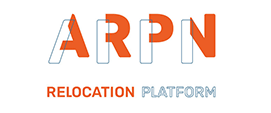
I want to employ an expat, what now?
Index
- Do we need to arrange a visa or work permit for the expat?
- What are the steps in the immigration process for non-EU expats?
- What support should we offer during relocation?
- Is the 30% tax ruling applicable to our expat employee?
- What are the costs involved in hiring an expat?
- What documents do we need from the expat?
- How do we ensure compliance with Dutch labour laws and international mobility regulations?
- Can we hire expats on a temporary or freelance basis?
- How do we onboard and retain international talent effectively?
- Where can we get expert help with international hiring and mobility?
- How can Anywr Netherlands help?
That depends on the nationality and employment type.
EU/EEA/Swiss citizens can live and work in the Netherlands without a visa.
Non-EU citizens typically require a residence permit, often under the Highly Skilled Migrant scheme.
Posted workers (EU citizens assigned to the Netherlands) may trigger obligations under the WagwEU (Posted Workers Regulation), including notification requirements.
Non-EU employees who stay in the Netherlands for a maximum of 90 days within a 180-day period for the following purposes require a business visa (Type C visa):
– Visiting a client, supplier, or business partner
– Attending a trade fair or conference
– Engaging in negotiations or contract discussions
Employers must be recognized sponsors with the IND and submit applications for residence and work permits. Timelines and documentation vary by case.
HR managers often provide help with housing, registration, schooling (if applicable), and cultural orientation. This improves employee experience and retention.
This tax advantage can significantly reduce taxable income for eligible foreign workers. It depends on prior residence, expertise, and salary thresholds. Application of the 30% ruling makes relocation to the Netherlands for your company attractive and also gives benefits to your company as you pay lower taxes.
Costs may include visa fees, relocation expenses, schooling and/or housing allowances, and tax advisory services. Budgeting early helps avoid surprises.
Typically: passport, counter signed employment contract, diploma or proof of expertise, and sometimes (legalized) birth certificates or a marriage certificate.
This includes correct registration with the IND, notification of posted workers, and adherence to Dutch employment standards.
Yes, but legal and tax implications vary. Freelancers from abroad may need to register with the Dutch Chamber of Commerce and meet visa requirements.
A strong onboarding process, cultural integration support, and clear career paths are key. Many companies also offer Dutch language courses and expat networks.
HR teams often collaborate with relocation specialists, immigration advisors, and global mobility consultants. Organizations like Anywr Netherlands support employers with recruitment, immigration, and relocation services tailored to expats and knowledge migrants.
Anywr Netherlands offers immigration, 30% ruling and relocation services. We work with third parties for other related services, like physical moves, or other tax advice. Depending on your workforce, your company culture and budget, you can offer self-service to red carpet assistance.






